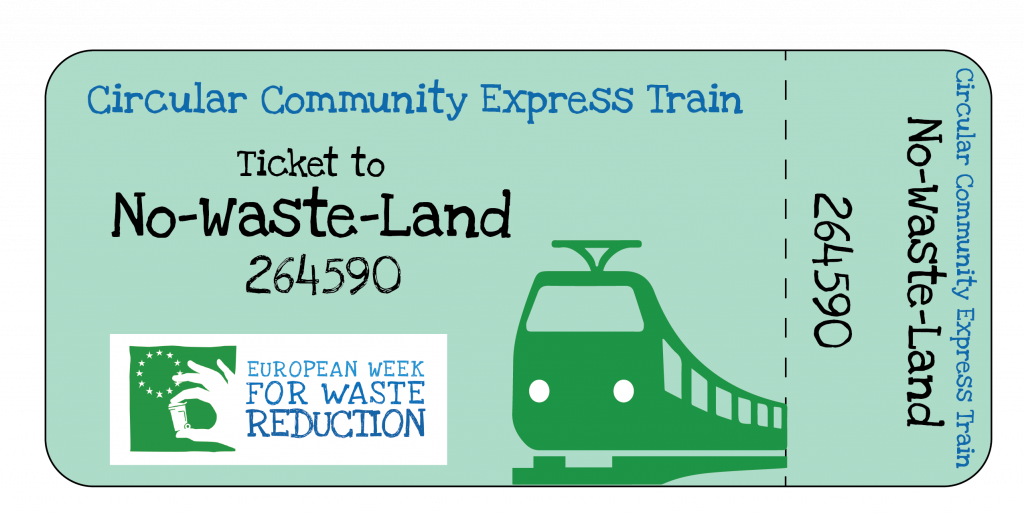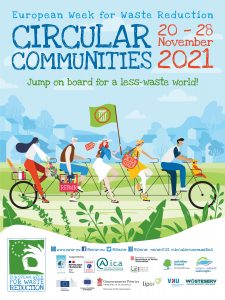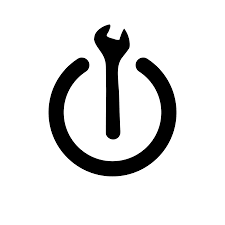A single little fish on the ocean has very few possibilities to get safe from a shark’s attack. For this, little fish get together creating a big shape made of hundreds of them. Combining their bodies and strengths is the only way to survive and tackle such a big threat. The incessant waste production is one of the biggest threats that our society and our planet are facing. The fight against it is again a shared responsibility among all humans. As for the little fish, the collaboration is the only key. Several success stories of community participation across Europe have strengthened the view of governments and local authorities that they cannot work in isolation and require active participation of citizens and local communities’ stakeholders to prevent waste.
This year, the European Week for Waste Reduction challenges you to act together to shape circular communities aimed to prevent the waste production. These difficult times have highlighted the role that small communities can play in the transition towards sustainable consumption and production patterns. All organisations (non-governmental organisations, grassroots movements, businesses, educational establishments, public authorities), as well as individual citizens that provide waste prevention, takeback, reuse, recycling and composting services should be involved in order to achieve zero waste targets.
Jump on board for a less-waste world!
The key word is collaboration among individuals or groups of people to imagine and build together communities based on the circular economy approach all around Europe and beyond! These uncertain times showed us the importance of human contact but, most of all, the power that people have in changing daily habits. The circular approach needs to be spread at local level reaching houses, offices, schools, factories, markets, city halls, local organisations, farms, etc.
The thematic focus refers to the need that individual citizens and the wider community are engaged, invested, and see local value and benefit in pursuing zero waste and circular activities. Promotion of circular economy and a zero-emission society will necessitate a change of consumption and production patterns that go well beyond climate action alone. There is a full ecological transition that needs to be led and owned by the communities if we want it to succeed. A sense of solidarity and collaboration is needed among individuals believing in a society that stops producing waste and, which act together to promote a circular economy and reach a sustainable development, by maintaining a good balance between the underlying environmental, social and economic pillars. Small, local, just, inclusive and circular communities can play a great role in pushing Europe towards a sustainable future.
Get inspired!
- We choose reuse campaign, promoted by the global #breakfreefromplastic movement envisioning a future free from plastic pollution.
- Urban mining: when communities reject the throw-away economy, the story of a Belgian creative lab and community of upcyclers extracting precious resources from urban waste and giving products a second life.
- Right to Repair, an European campaign supported by community repair groups, environmental activists, social economy actors, self repair advocates and any citizens, to demand to make the repair easier.
- CECI good practices, an Interreg Europe project to develop the local and regional cooperation between various actors and at the same time to support the regions to generate circular economy strategies where citizens play a key role.
Poster
You can download below the thematic poster on circular communities. Use it to inspire others to take action for the EWWR! Check the archived materials to find the poster translated in the other EWWR languages.
Factsheets and infographics
Toolkit on Online Resources for Circular activities – provided by CEYOU project
5 tips to build a circular community with the EWWR
Inspiring EWWR actions on circular communities
Community compost – inspired by Brussels Environment
The benefits of choosing second-hand
5 tips to save water in your everyday life
Game on circular community
Join the journey of the Circular Community Express Train and prove to deserve to reach No-Waste-Land! If you will pass all the tests, you will become a member of the EWWR Circular Community.
The game is available in:

Videos
Share these videos to promote the creation of circular communities to move towards a less-waste world!
The Restart Party toolkit
The Restart project is a people-powered social enterprise that aims to fix our relationship with electronics. They run regular Restart Parties where people teach each other how to repair their broken and slow devices – from tablets to toasters, from iPhones to headphones. Schools and organisations are also involved to help them value and use their electronics for longer. A guide has been developed to gather all the information you need to organise your own Restart Party in your community.
The guide is available in English, Spanish, Italian and French.
 EN (full site)
EN (full site) ITA
ITA FRA
FRA POR
POR ESP
ESP CAT
CAT DEU
DEU NED
NED HUN
HUN
